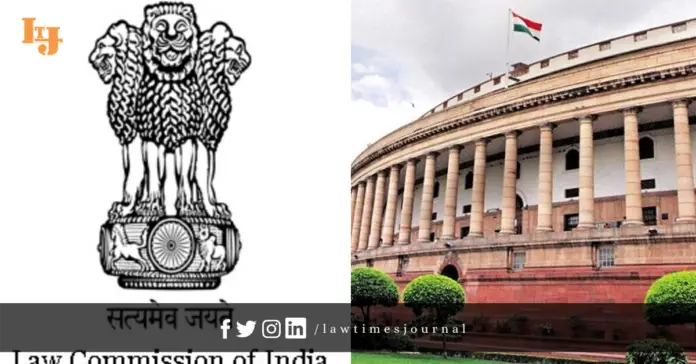
The Union cabinet has approved the constitution of 22nd Law Commission of India. It shall function for a period of 3 years from the date of its official constitution.
Brief facts:
Law commission of India is a non-statutory body constituted by the Government every three years. It advises the government on complex legal issues and suggests reforms in law to the Ministry of Law and order. Law commission has not been defined under the Constitution of India, whereas the same is established as per Article 39A of the Indian Constitution. The law commission is formed by passing a resolution in the central government after which the president gives his assent to it. The law commission has so far submitted 277 reports.
On 19th February, 2020, the Union cabinet under the chairmanship of Narendra Modi, the Prime Minister of India has passed a resolution to constitute the 22nd Law commission. The period of the 21st Law commission had expired on April, 2018. The commission shall recommend the government on different aspects of law that is entrusted to the commission as per the terms of its reference. The commission shall undertake research on brining reforms to the justice delivery systems that eliminates delay in procedures and enables speedy disposal of cases. The commission either based on the reference made to it or by suo-motu shall undertake studies on the existing law and suggest the required reforms or the need to enact a new legislation.
Constitution of the 22nd Law Commission:
The 22nd Law commission of India comprises of:-
1. A full time Chairperson
2. 4 full time members which also includes the Member- secretary
3. Secretary, Department of legal affairs as ex-officio member
4. Secretary, Legislative Department as ex-officio member
5. Not more than 5 part time members
Functions of the commission:
1. To identify the laws that are out dated and no longer relevant that can be repealed immediately.
2. Examine or review the existing laws taking into consideration the Directive Principles of state Policy so as to
3. Suggest ways of Improvement and reforms
4. Suggests enactment of laws that might be necessary to implement the Directive Principles of state policy and
5. Facilitate the attainment of objectives of the preamble.
- To provide its views on laws or the judicial administration that are specifically referred to it by the Department of Legal affairs, The Ministry of law and Justice.
- To undertake research for the foreign countries that is referred to it by the Department of Legal affairs, The Ministry of law and Justice.
5. Take all measures that are necessary to harness laws and the legal system in the service of the poor
6. Review the central laws so as to remove anomalies, ambiguities and inequities and simplify them.
The commission is required to consult the nodal ministry or the department or any such stakeholders as the commission deems necessary before finalizing its recommendations. The appointment of personals to the commission is yet to be notified.
Edited by J. Madonna Jephi
Approved & Published – Sakshi Raje
Reference:
1. Press release dated 19th February, 2020 by PIB Delhi








